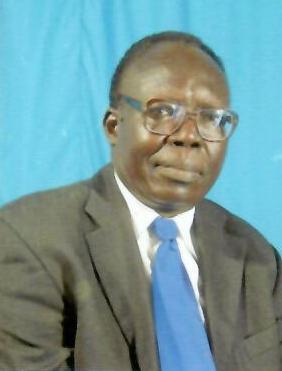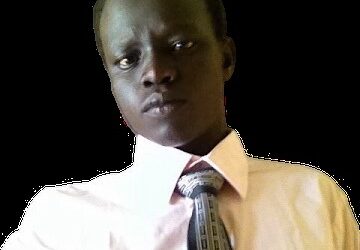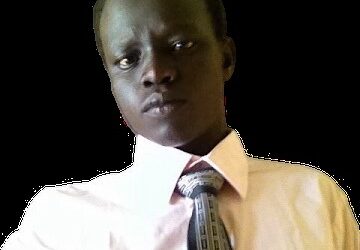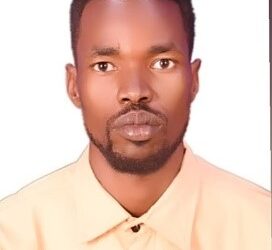By Prof. Venansio T. Muludiang, PhD University of Juba
These days, the print media in South Sudan is awash with scepticism about holding general elections in the country by the end of the transitional period of the Revitalized Agreement for the Resolution of Conflict in the Republic of South Sudan (R-ARCSS). Elections to pick constitutional post holders are scheduled to take place in December 2024.
The doubting Thomases, who seem to be increasing day by day, include South Sudanese politicians, analysts and some foreign watchdogs and beneficiaries, all of whom seem to have a vested interest in the continuation of the status quo. The litany of preconditions for holding elections includes, among others, anything from completion of the security arrangements to population census and the repatriation of refugees and internally displaced persons (IDPs).
Paradoxically, some of the sceptics vehemently raising these concerns and sounding the alarm are the very people who are in the so-called peace agreement together, and are supposed to be key partners in its implementation.
I have said time and again that what was signed in Khartoum in 2018 was a mere power-sharing deal and not a peace agreement. That explains to a larger extent why its signatories were obsessed with their positions in the government to the extent that they dragged their feet for half a decade without much progress in implementing the deal.
When it was about to come to a chaotic end, they simply gave themselves two more years to do something or do nothing. So when some of these politicians talked of implementing the peace, this was not just a mere grammatical mistake, it is indicative of the fact that there was no peace agreement to implement in the first place. There were only portfolios to be shared in order to coexist and eat peacefully. That is why we continue to be where we are.
The President of the Republic, Gen. Salva Kiir Mayardit, has stated time and again that he will not take South Sudan back to war. This statement seems to have been misconstrued to mean a continuation of the status quo by those who want to maintain the positions given to them by the R-ARCSS.
For this group of people, peace simply means having all the stakeholders at the dining table with full stomachs and tampering with this equilibrium means going back to war. But for how long are we going to stay in transition, and for how long should the parties to the power-sharing deal continue to rule South Sudan without a popular mandate? Is time really the problem or is it the lack of political will? A German diplomat once said that what the South Sudanese leaders need is neither time nor resources; they only need political decisions. I cannot more than agree. Give the R-TGoNU five more years and the incumbents will still be bickering over lack of progress and the need to have more time.
The disciples of extension are just too many, and they will not hesitate to clap for it if given an opportunity to do so. What the sceptics who are out of the government do not know is that by fanning the globally accepted democratic principles of free, fair and credible elections, they are actually playing into the hands of those who want to rule South Sudan indefinitely without the people’s mandate.
To be clearer, let me try to take issue with some of the preconditions given for holding general elections in South Sudan in 2024, leave alone talking about a levelled playing field. Some of the prerequisites cited by the sceptics include completion of the security arrangements, chief among which is the deployment of the Necessary Unified Forces, the conduct of a population census and the repatriation of South Sudanese refugees and internally displaced persons (IDPs).
Who is to be held responsible for the deployment of the Unified Forces? Do we expect the United Nations to do this when the two principals to the Revitalized Peace Agreement are both Generals in the Army, with the President as its Commander-in-Chief? Do we expect the IDPs to return to their homes of origin when many now want to be resettled in places of their choice? The issue of refugees is even trickier.
By the terms of the Geneva Convention, their return to South Sudan has to be on a voluntary basis as this cannot be done against their will. All that needs to be done is to make conditions in the Country conducive to attract them back home. They cannot be given marching orders. As for the population census, it is provided for in the R-ARCSS but nobody talked about it until the last minute.
It is not even mentioned in the Roadmap intended to tackle the unresolved provisions in the Agreement. For those who do not know, a population census is a huge undertaking that requires a lot of resources, planning, execution and data analysis. It also needs peace so that enumerators can travel freely to all parts of South Sudan. This can pose a formidable challenge for the government, given the environmental and security conditions in parts of South Sudan.
To conclude, we are now beginning to read the writings on the wall. The current political actors in South Sudan have been in the game of extension since independence. By engaging in the debate on elections at this moment, they may just be faking seriousness about implementing the R-ARCSS while actually preparing the mindset of South Sudanese for another extension of the transitional period. This has now become an open secret to all and sundry. If by any chance we are able to go for elections by the end of 2024, there is absolutely no guarantee that what happened in 2010 will not repeat itself. The only difference this time around will be that those who are now claiming to be out of that dirty election game are ironically and increasingly apprehensive about the possibility of becoming victims of the electoral process. We had sham elections in 2010 when we were part of Sudan, and the SPLM was one united party. Though marred by vote rigging and intimidation, those elections were declared free and fair by those who won them. We may have the same type of elections in 2024. But the question that must be answered is that if we do not have elections by then, how will South Sudan be governed after the end of the current transitional period?




